Back to School Multiple Choice: In-Person, Online, Both?
Updated as of July 17: Schools open with several learning options on the table. But the what-ifs of COVID-19 mean schools also have to be prepared to change direction at any time.
Update as of Monday, July 20: Gwinnett County School District announced today it would return to school Aug. 12 with all students receiving digital instruction.
School district reported that “leaders continue to study guidance from the Department of Public Health and the Georgia Department of Education in planning for the safest, most effective opening of school this fall. The district also has gathered input from our students, families, and employees of the district, as well as other community members.”
_______________________________________________________________
There’s a popular adage, “Man makes plans, G-d laughs.” The phrase aptly relates to how Atlanta’s public and private schools have been scrambling, planning and re-evaluating those plans the past few months to restart school in August amid one of the country’s worst pandemics.
Most of the Jewish schools included in this story have developed a fall game plan that involves returning to school in person, at least in part, after a spring shutdown which switched classroom instruction to virtual education at home halfway through the semester. Their fall plans call for alternative educational methods and scenarios, and backup contingencies in case schools need to reverse course in the face of a serious spike in COVID-19 cases, reverting back to online learning.
The majority of those plans involve options for in-person learning, digital education at home or a hybrid of the two. Some public schools were allowing families to choose which option works best for them, at least for the first semester, until school boards in a chain reaction – one after another this week – decided to return to remote learning.
Previously, a number of school districts were accepting feedback and holding town hall meetings to gain input, with decisions to be announced later this month. Several public schools also delayed the opening of school to allow more time to prepare, considering the increased health and safety burden required as a result of COVID-19.
Returning to the classroom after the spring school shutdowns for those still on that path will involve meticulous cleaning protocols, discussions about the use of masks in the classrooms – a highly contested subject – spacing out seats and other prescribed health precautions. A few of the schools included in this story were still finalizing those plans at press time.
While schools are accustomed to building extra days into the academic calendar in case it snows, responding to the what-ifs of a global health pandemic, as it ebbs and flows, creates the need for a whole new “playbook,” as one Atlanta Jewish day school calls it.
The schools are following state and national health guidelines while preparing for those what-ifs. The latest directives from Georgia education and public health departments on schools reopening as part of the global pandemic recovery plan were released last month.
Planning for the unknowns of COVID-19, which shuttered schools in March, means answering such questions as: What if there’s a serious spike in cases? What if a student, family member or teacher contracts the virus?
Reopening also requires plans for social distancing, enhanced health and hygiene maintenance and other modifications related to the public health environment.
Schools have to consider: whether to rearrange schedules to make more efficient use of existing space, whether to hire additional teachers, how to increase cleaning of school facilities and what changes might mean to the operation of school buses and cafeterias.
The Atlanta Jewish Academy is sticking to its original plan to begin the school year Aug. 13, but with two different teaching and learning models in the event that the school year needs to start and then stop in response to another outbreak, said AJA Head of School Rabbi Ari Leubitz.
“When we closed the campus in March, we had to immediately think proactively for the spring and fall semesters. My team and I carefully mapped out our ‘Reunite and Reignite’ playbook, an overview of different teaching and learning models, a roadmap of sorts to respond to an ever-changing, uncertain public health scenario upon our return to campus.”
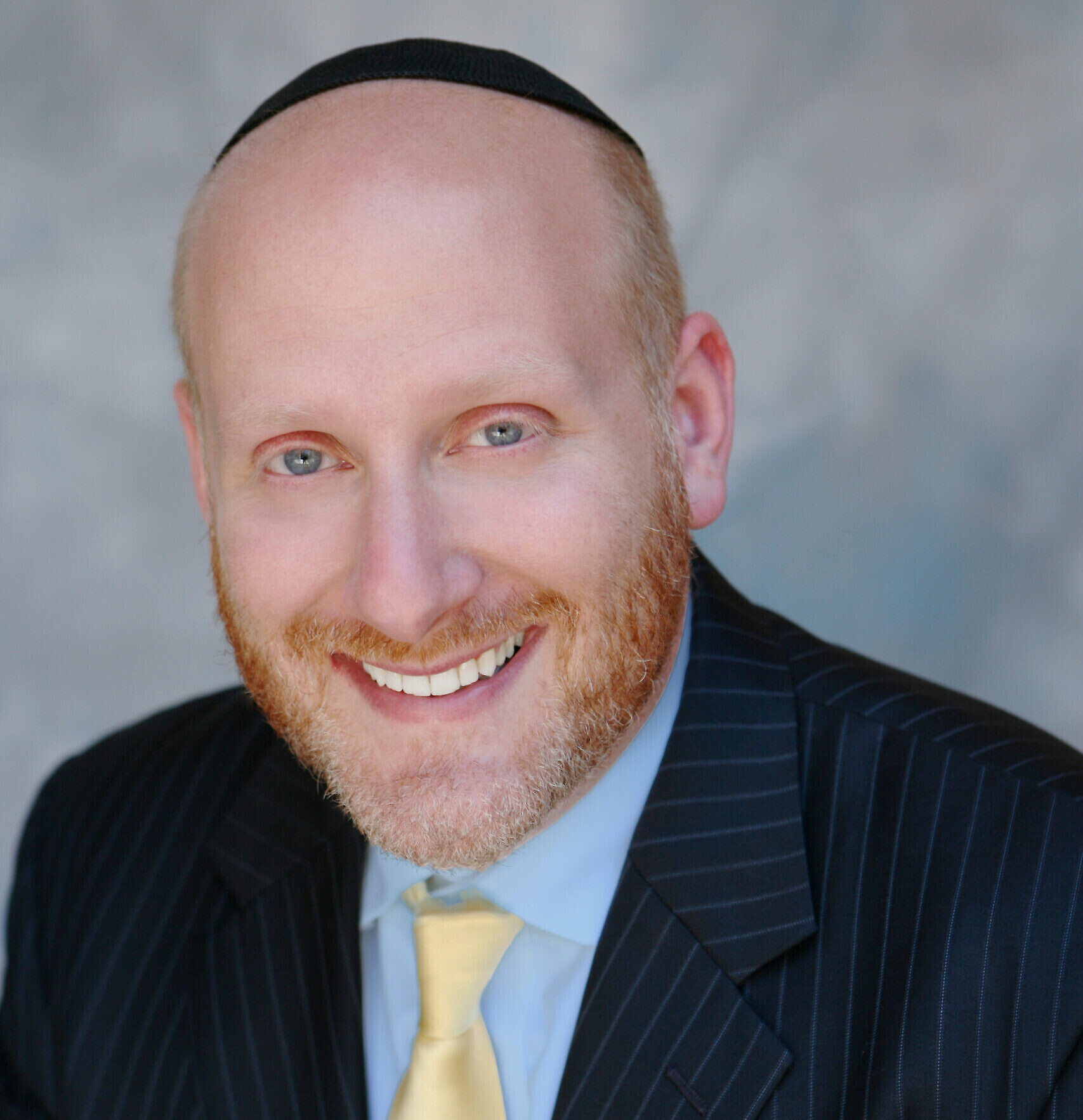
The two models AJA will offer are the Adaptive Learning Plan (on campus, with modifications) and Remote Learning Plan (all online learning). “The decision as to which model to follow will be influenced by the environment in Atlanta, the decisions of public health officials along with the experience of our carefully selected AJA Safety and Medical Committee,” he said.
Earlier this month, Leubitz and his instructional team leaders held parent town hall meetings grouped by division (early childhood, lower school, middle school, high school) to review part one of the playbook, focusing on the academic plan. The leadership team, along with the safety and medical committee, has been focusing on part two of the playbook: policies and procedures. “We have been meeting regularly and are making great headway on finalizing the policies and protocols as the rules and recommendations keep changing,” Leubitz said.
Beyond the playbook, the school had to consider such issues as programs, transportation and how to navigate, divide and maximize the current building space, he said. “You can’t just bring almost 550 people into the building the same way we did in the past,” he said, referring to AJA’s estimated 435 students and 110 staff. The solution is multi-faceted, involving modified carpool protocol, drop off times, hallway traffic patterns, smaller classroom sizes and High School Remote Learning on Fridays, he added.
“Effectively and safely utilizing our space is something we have been carefully evaluating.” AJA also operates an early childhood department with infants and toddlers at the school. When they return in the fall, maintaining a self-contained COVID-compliant environment for the youngest is an important focus given their ages and physical needs, he continued.
Later this month, AJA will announce its safety and health policies and protocols, which include addressing mask/face covering requirements. “At this time, we are asking parents to plan to provide five masks per student, so that in the event that masks are required, they will have a clean one to wear daily.”
All AJA faculty and staff will wear masks, and for the younger grades, some will wear shields and wipeable smocks. This and other policies will be announced at the end of this month with part two of the playbook.
Just as there was no manual about how to shift from brick-and-mortar schooling to education in the virtual world, there is no handbook for how to reopen, Leubitz said. “No guidelines exist; this is uncharted territory. The task in front of us is as unprecedented as the virus. The planning with so many unknowns can be overwhelming at times.” Yet Leubitz remains confident in his school community to roll with the punches and continue its “culture of ongoing trust, support and flexibility.”
At Torah Day School of Atlanta, the plan is to open Aug. 24. “We are developing models,” said Head of School Rabbi Meir Cohen. “A number of guidelines have come out to help with those models.” He cited the state’s new advisements for reopening.
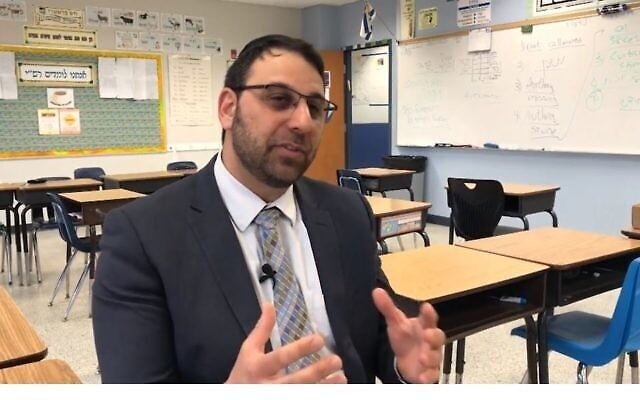
Cohen listed four possibilities for Torah Day School depending on the health situation at the time: a normal back to school with a few more health precautions and monitoring of sickness; a hybrid with students and classes spread out throughout the school, separation of grades to avoid cross-contamination, staggered entrances and more health protocols; a hybrid with rotation of days or times; or a return to “home learning” as occurred in March when schools were closed. While Cohen said he didn’t foresee the latter happening, the school may need to switch between the models as conditions warrant. “It’s going to have to be fluid. That’s the reason there are models to move back and forth through the school year.”
He said school leaders will spend the summer working out what back to school “will look like educationally, logistically and operationally.”
Some of the questions the school leaders will have to answer include: What system will be in place for entering the school? What type of health monitoring will there be? What will happen if someone is slightly ill?
Faculty, staff and students will also be reminded how to stop the spread of germs, Cohen said.
Meanwhile the school board has already decided not to raise tuition and is hoping to receive assistance from the Jewish Federation of Greater Atlanta’s COVID-19 Emergency Response Fund. The largest allocation in the second round of funding in May was $400,000 to Jewish day schools and $100,000 for preschools to help with reopening costs.
“It definitely won’t cover the increased cost of supervisors, hardware and health supplies,” he said.
In addition to increased costs of operation associated with the new COVID-19 measures, more people who have lost jobs have been asking for financial help. “I expect tuition assistance requests to continue,” he said.
In a statement to the AJT at press time, The Weber School said it opened its campus for athletic workouts and other programs June 8. “The school is currently communicating with its students and parents regarding plans for the first day of school on Aug. 17,” the statement read.
The Davis Academy plans to be back to school on both its campuses Aug. 17, but is still deciding on three potential scenarios “should the course of the virus swiftly necessitate a change during the school year,” according to a release Monday. The preliminary scenarios are: on-campus learning at the two campuses; hybrid learning that alternates between on-campus and distance learning; and distance learning if the school is forced to close. The full reopening plan will be released July 30, the school said.
The Davis Academy also is developing plans for a “cohort model of learning that would center on groups of students receiving their core academic instruction — in alignment with their academic placement in the upper elementary and middle school grades —while typically remaining in one classroom or location during the day,” the release stated.
“Effectively, faculty would move to instruct classes as opposed to students moving to faculty. Cohorts will, of course, utilize the gymnasium, outdoor spaces and specialty rooms like science labs, solely as a cohort, with proper cleaning and hygiene.
“With a move towards this cohort model, the school will likely make additional changes in the day including scheduling increased learning and recreational time outdoors for all grades, and a move to a full block schedule for middle school, that would increase instructional time allowing for deeper learning, with several breaks scheduled in,” the release continued.
“The cohort model will also make it easier to transition to online learning — only if necessary — and better replicate the on-campus instructional day if a move to online is necessary. In addition, this model of keeping cohorts separate will allow The Davis Academy to continue on-campus instruction for most students, if a particular cohort may have to be restricted to online learning for several weeks based on an infection or exposure in that cohort.”
Preparing for the fall is definitely a struggle for schools with all the uncertainty in the health care environment, said David Abusch-Magder, head of school of The Epstein School, which resumes classes Aug. 10.
“These times are certainly challenging because they leave us with more unknowns than usual. This is especially true when we think about what school will look like for the 2020-2021 school year. For Epstein, our educational plan will focus primarily on two goals which are, as always, centered on our students:
• Keeping our students and faculty, and accordingly their families and the larger community, healthy and safe, and
• Returning to school in-person on our campus for a year of learning, growth, community, and fun.
“It may seem a challenge, at present, to achieve both seemingly contradictory goals, but it is my strong belief that we can do both. We are planning to be in our building when school resumes in August. Our leadership and educational teams have already been working for months and are continuing to work diligently on plans for the various scenarios that we think will best meet students’ needs for learning and safety in an in-person environment,” he said.
Outside of Jewish day schools, here’s a summary of Atlanta public school plans for the fall:
Gwinnett County Schools decided at a special meeting called last week to delay the start of school from Aug. 5 to Aug. 12, “giving the district additional time to review and adjust its return to school plans to best meet students’ needs and to reflect the most updated guidance from public health officials.”
On June 25, the district announced it would allow parents to choose between in-person or digital instruction for their children for the first semester. The survey was open through July 12. “That information, coupled with ongoing review of the current and anticipated COVID-19 situation in Gwinnett County, will guide school district leaders as they continue to assess and respond to COVID-19 and adjust plans as needed for the coming school year.”
School leaders also decided last week to require school system employees and students, along with visitors to school facilities, to wear masks or face coverings. This reverses a previous directive that masks would be encouraged for those who can wear them, but not required as “the use of masks can be a challenge for some children and adults,” according to Gwinnett’s “common sense approach” guidelines released last month. In the latest ruling, Gwinnett schools announced that “Medical professionals recommend social distancing and the wearing of a mask or face covering as two primary steps to minimize the spread of COVID-19.
As social distancing will be a challenge in schools and on school buses, GCPS is asking those who attend and/or work at its schools — as well as those who drive buses and work in other GCPS facilities — to wear a face covering or mask to minimize the spread of illness, and keep students and staff members safe.
“A lower incidence of illness also will contribute to schools being able to return to normal operations. If a student is not willing to wear a mask or face covering, he or she should consider digital learning.” It’s one of two options Gwinnett families can choose from for their education this fall.
“Accommodations will be made for students or employees unable to wear a mask for documented health reasons.”

As part of the planning process for back to school, Gwinnett Schools announced last month it had “gathered feedback from families about their preferred way to return to school. A survey completed in mid-June showed that 43 percent of parents prefer a return to in-person instruction; 34 percent prefer [complete] digital learning; and 23 percent prefer an option that combines in-person instruction with digital learning.”
Although school leaders couldn’t make the combined option work, they decided to open the school year with in-person instruction, along with an option for digital learning, for students in grades K-12.
The district asked families to choose by July 12 which option they preferred for their children: in-person or digital learning at home. Those who don’t register a choice will be assigned to in-person instruction.
“Students will attend school based on the option chosen for all of first semester (through December). A change may be made after the first nine weeks, if it is needed to better serve the student.”
Still, Gwinnett is prepared for change. “We hope we will be able to open our school buildings on August 5 for traditional, in-person instruction. However, if government or health officials determine the conditions are not safe for students and staff, GCPS leaders will make the decision to begin the year with online digital learning.
Here are some “common-sense approaches” students can expect when Gwinnett schools resume next month, similar to those approved for other Atlanta schools:
• Periodic screenings, including random temperature checks. Students and staff with COVID-19 symptoms or a temperature of 100.4 or higher will be isolated immediately and sent home.
• All students and employees must stay home if they have COVID-19 symptoms, tested positive, or had close contact with a person with COVID-19 within the last 14 days. (Health guidance will be followed for return to school/work as well.)
• Frequent handwashing encouraged, with breaks for scheduled handwashing at elementary school level. We also will recommend bringing hand sanitizer from home.
• Cleaning/disinfecting of buildings, surfaces, and high-touch objects will be done more frequently. Ventilation systems will be monitored for proper operation. Buses will be cleaned/disinfected after morning/afternoon routes.
• Schools will limit visitors; serve meals in classrooms; stagger lunch, playground, and class-change schedules; and hold meetings/events virtually as possible.
• Where feasible, rooms will be arranged with student desks facing the same direction and students seated at tables will sit on the same side.
• Students will be discouraged from sharing books, materials, supplies, or equipment, including devices and equipment used for athletics/PE.
• Cleaning/disinfecting protocols will be used in computer labs, media centers, and athletic facilities.
• Cafeteria keypads will be replaced with a barcode scanning system.
• Water fountains will be shut off. Students will be encouraged to bring water from home.
Fulton County Schools decided on July 16 to begin school using “the Universal Remote Learning model.” It also decided recently to delay its first day of school, from Aug. 10 to Aug. 17. With one-third of the schools serving as polling places for the Aug. 11 election, they needed more time to disinfect “while also providing teachers and staff additional days of professional development to prepare for our students’ arrival.”
The change in the first day of school “will not affect any other calendar dates, winter/spring breaks, holidays already announced, or the last day of school.”
Families had until Friday, July 17 to decide what educational environment worked best for them: in-person or online education. But the school district jumped the gun a day before that deadline announcing it decided on virtual learning. The offering for online was to include “an Individual Remote Learning opportunity for students in grades 1-8 and a Full-time Fulton Virtual opportunity for students in grades 9-12.
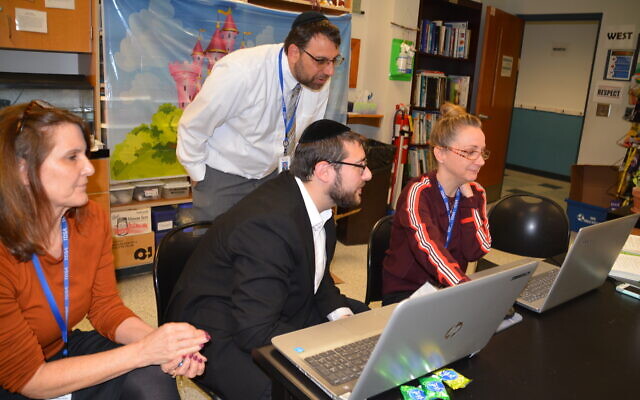
“These options are available for students who have an underlying health condition, a social or emotional condition, or other special or extenuating family circumstances that prevent them from safely returning to a face-to-face school environment due to COVID-19. The programs are also open to other interested families.” Registration began June 30 and was to end July 17. “These virtual options require a semester commitment (from August through December) and do not include extracurricular activities at local schools. However, virtual clubs will be offered.”
Cobb County Schools also decided Thursday, July 16 to return to full remote learning when school begins Aug. 17.
“This decision has been weighing on me for a while,” superintendent Chris Ragsdale said in an online release. I know we need to get back to face-to-face instruction. That is why we tried to offer parents two options – in-person and remote to start the school year. Unfortunately, public health guidance goes not make the possible,” he stated.
Cobb County Schools earlier this month pushed back its start date from Aug. 3 to Aug. 17. Families were to be able to choose their own option for education, between face-to-face or remote learning for the first semester. “After months of planning and understanding how student and staff needs have changed as a result of COVID-19 closures, Superintendent Chris Ragsdale announced that Cobb Schools will open for face-to-face instruction with parents being able to choose a traditional classroom or a remote learning classroom,” the district announced June 29.
Families were asked to submit their choices by later this month before the decision for remote learning was announced on July 16. “This format represents the best solution which balances our two most important priorities: the health and safety of our students and staff and student learning.”
Atlanta Public Schools on Monday tentatively voted to delay the start of school for two weeks from Aug. 10 to Aug. 24 with a virtual learning model for the first nine weeks of school, according to media reports consulted for this story. The board will give final approval to the calendar change at its meeting next month.
On Monday, the DeKalb County Schools District also approved delaying the start of the school year from Aug. 3 to Aug. 17, beginning with distance-remote learning. In a survey of parents, students and employees, the district found that most were comfortable across the board with the hybrid of virtual and in-person learning. Students were more comfortable with the traditional in-person instruction than parents or employees, with 70 percent of the latter uncomfortable with that option, the survey found.
When it comes to planning for the first day, “schools have put a tremendous amount” of effort into creating provisions for school to operate under a different format, said Cohen, of Torah Day School. “They needed resilience and grit to deliver instruction and learning far more than necessary.”
Dave Schechter contributed to this story.
- News
- Community
- Back to School
- COVID-19
- atlanta jewish academy
- Rabbi Ari Leubitz
- Torah Day School of Atlanta
- Rabbi Meir Cohen
- jewish federation of greater atlanta
- COVID-19 Emergency Response Fund
- The Weber School
- The Davis Academy
- David Abusch-Magder
- The Epstein School
- Gwinnett County Schools
- Fulton County Schools
- Chris Ragsdale
- Cobb County Schools
- DeKalb County Schools
- Atlanta Public Schools



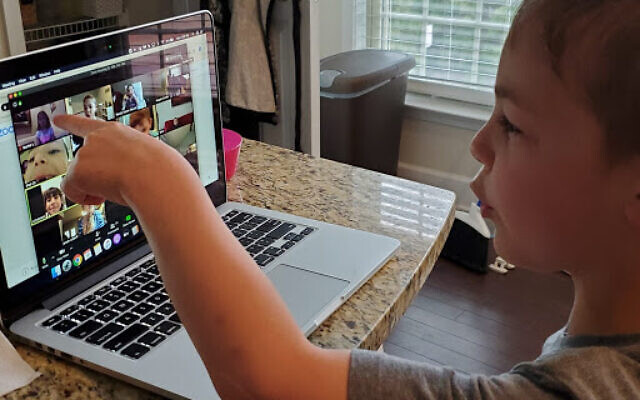
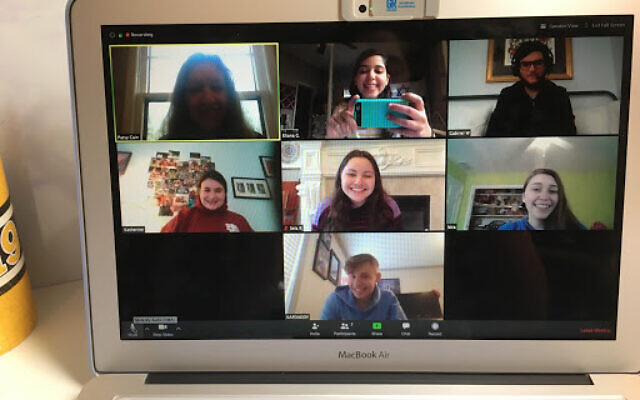
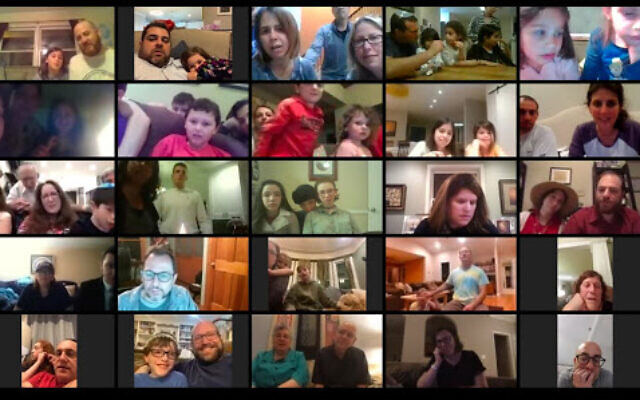
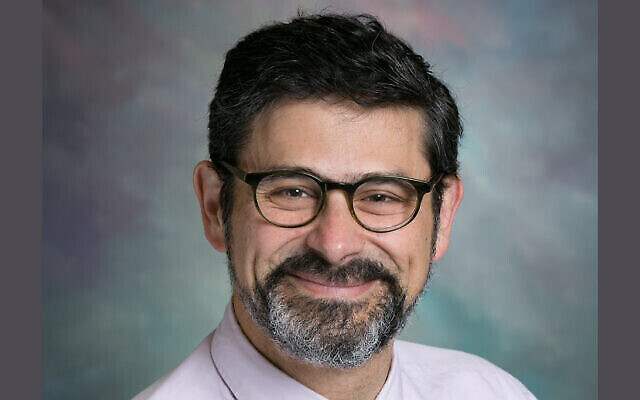
comments